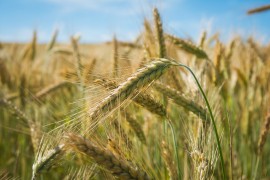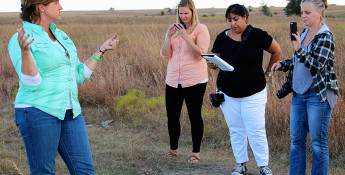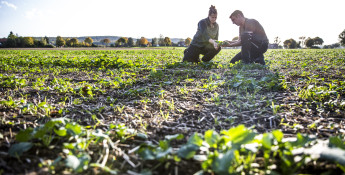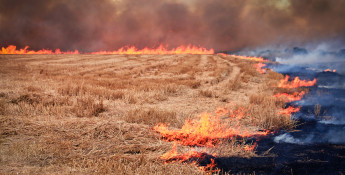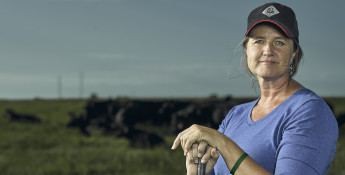By Hannah Becker on December 14, 2017
What is sustainable agriculture?
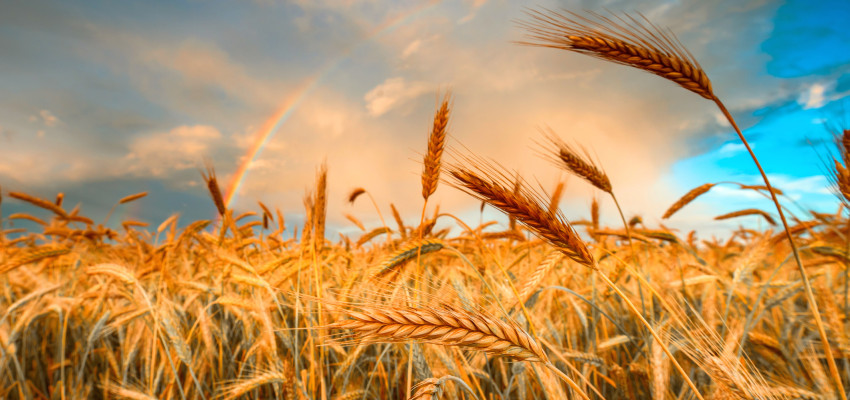
Over the past few years, sustainable agriculture has become a hot topic in food conversations; but what does “sustainable” mean when it comes to farming?
Spoiler alert: it’s more than organic gardening.
Sustainable agriculture engages communities, focuses on the environment, prioritizes public health and ensures the future of food production. It’s meeting the needs of today’s population in ways that conserve resources for future generations.
Let’s look at four characteristics of sustainable agriculture:
Community
Sustainable agriculture isn’t restricted to those working in the fields – sustainability practices apply to everyone involved in the food chain. From the farmer to the consumer to the waste manager, everyone in the community plays an important part in sustainability.
Developing communities committed to addressing the complex challenges modern food production encounters is a key principle in effective sustainable agriculture. Farmers prioritize natural resource conservation, consumers make consumption decisions that are environmentally conscious, and the cycle of sustainability repeats.
Environment
Shifting lifestyle preferences and mechanization technologies in the first part of the 20th century forced farmers to
prioritize production in the short run, leading to topsoil depletion and water contamination (Dust Bowl, anyone?). Farmers and ranchers realized such mass-production farming techniques could threaten our future, so they partnered with government agencies and research programs to develop more environmentally friendly farming practices – aka sustainability.
Sustainable agriculture practices focus on meeting consumer demands for food while remaining conservation-conscious of natural resources. No till farming is one of the most widely adapted environmentally focused farming practices in the Midwest, as it allows farmers to grow more food with fewer resources.
Public Health
Farmers and ranchers are often on the frontlines of public health as their day-to-day responsibilities include disease prevention, natural resource management and other sustainable agriculture practices.
Livestock producers carefully manage their farms to minimize antibiotic resistance while prioritizing animal health. Farmers use innovative technology to protect groundwater resources for neighboring communities. Agricultural professionals in multiple roles work hard to implement environmental regulations that minimize emissions and pollutants.
Few professions have as much public health responsibility as farmers, who work to maintain a healthy balance between consumer demand and resource sustainability.
Farming for the Future
By definition, sustainable agriculture is more than protecting our world today – it’s ensuring resource viability for generations to come.
All farmers and ranchers must consider how their production practices may influence the next generations of agriculturists and consumers. It’s this type of intergenerational responsibility that makes sustainable agriculture integral to our society’s future.
Our world’s population is exploding. The number of farmers and ranchers are rapidly declining. Sustainable agriculture is key to feeding billions of people in the near future without depleting our earth’s limited natural resources. The future of food lies within sustainable agriculture.
Want to learn more?
You might enjoy this

